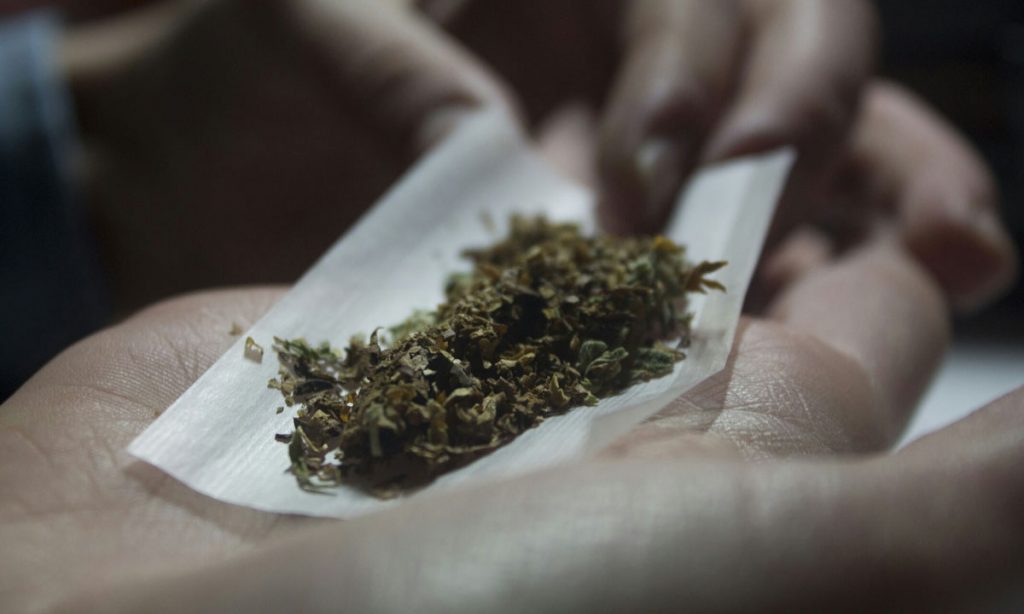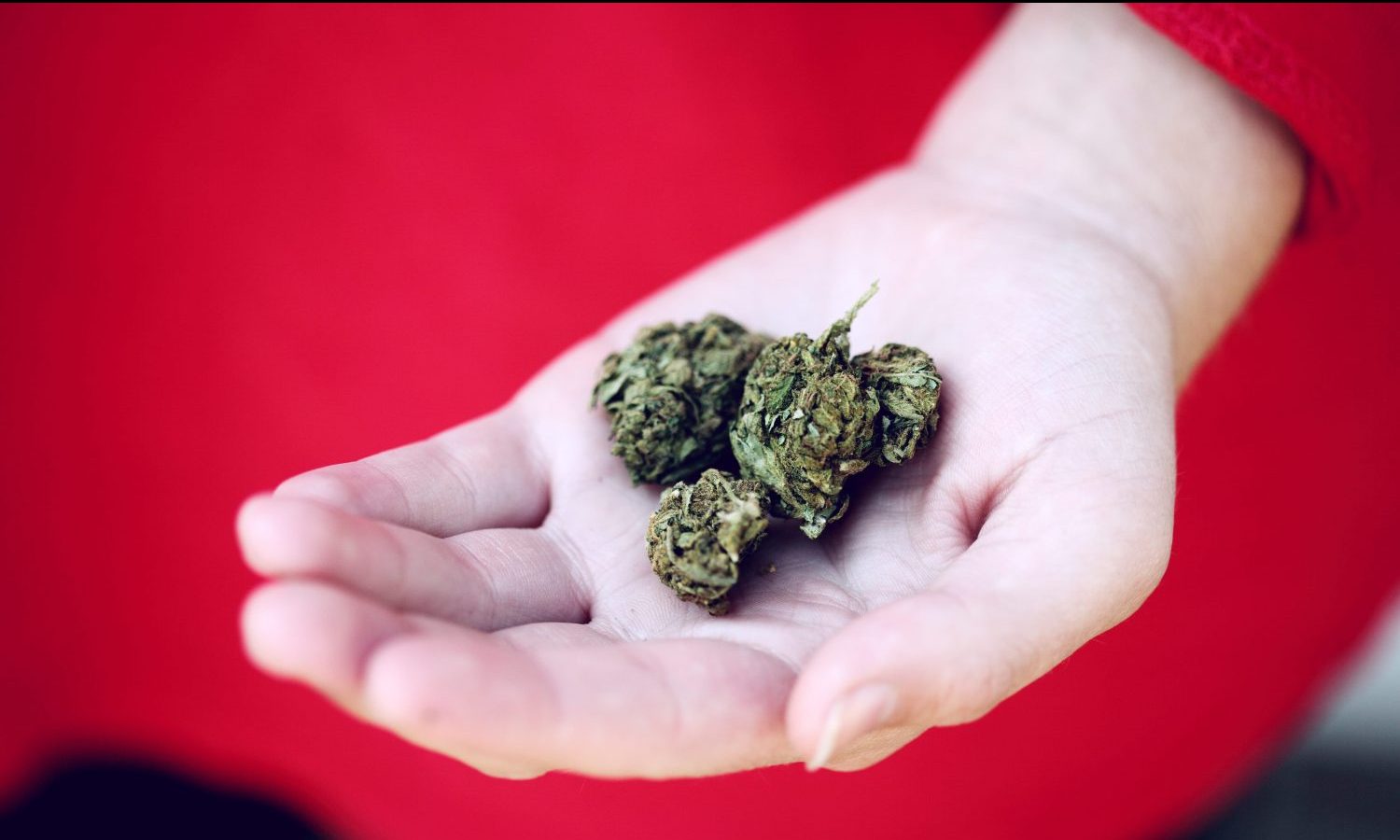Because it’s listed top of the schedule of abused drugs, there is an expectation that marijuana must be as highly addictive as heroin, and therefore horribly destructive.
Every time you light up a joint or inhale the vapor from a THC-infused vape or crunch down on an edible or put a couple drops of a THC-infused tincture into your coffee, you are effectively becoming part of a statistic: the marijuana addict.
There are so many ways to get THC into your system now, and researchers say that’s the problem. Having so many options, often packaged in such a way that it just seems like ingesting this psychoactive drug is harmless fun with a sort of backhanded illusion of safety, is just the sort of thing that makes anti-marijuana believers think that there is more to see here. They smell coverup. They sense capitalism overreach threatening citizen health. They see a brand new industry jostling with the rules to make a buck.
They even believe that the fun and the party jolliness and the fuck-em-all camaraderie that is part of the experience of consuming marijuana is lulling all of us cannabis enthusiasts into getting addicted—and we don’t even know it.
But wait. Let’s take a closer look at what makes an addict.
You have a few cups of coffee each day, you’re a caffeine addict. You smoke a pack of cigarettes a day, you’re a tobacco addict. Yes, you can have withdrawals from both, which are classic signs of addiction. Withdrawals from caffeine can cause fatigue, headaches and nausea. Only 20 percent of all smokers are able to kick the habit using various medications because it’s so addictive, and smoking tobacco kills 1,300 each day in the U.S. (COVID-19 currently kills about 600-1,000 each day).
But being a marijuana addict goes to another level, because these other addictions are socially acceptable and not under the intense scrutiny of the U. S. Department of Justice. Unlike marijuana, they are not listed as the worst drug on the planet with no medicinal usage whatsoever (but strangely, neither is alcohol, one of the most addictive and destructive substances consumed by man).
So because it’s listed top of the schedule of abused drugs, there is an expectation that marijuana must be as highly addictive as heroin, and therefore horribly destructive.
RELATED: Is Cannabis Withdrawal Syndrome Real?
That sort of belief sounds like a cruel joke to many marijuana consumers, but it’s what lawmakers use as a benchmark of why they don’t support legalization, and never will until this DEA scheduling error gets corrected. (One bill in Congress now, Kamala Harris’s Marijuana Opportunity Reinvestment and Expungement Act of 2019, does just that.)
That’s just one of the many ironies of marijuana.

Thousands of people “use” marijuana daily for medical ailments, from pain management to sleep disorders to help with anxiety. It’s changed the lives of hundreds of people suffering from epilepsy.
To say that they are addicted to marijuana does not really apply here — they are living because of marijuana, and living a better life because of marijuana.
They are choosing marijuana over other pharmaceuticals that are extremely addictive, such as opioids that killed nearly half a million U.S. citizens from 1999 to 2018 and is now in a third wave of overdose deaths. They are choosing to go with a plant that humans have consumed for over 5,000 years because they are living proof of its efficacy.
Yet, the marijuana-as-gateway drug theorists continue to call out marijuana as an addictive substance. They say that the upbeat medical side of marijuana is just a ruse used as a distraction from the recreational usage of marijuana, which is or will soon become an out-of-control addiction epidemic.
And upstanding medical organizations like the National Institute on Drug Abuse (NIDA) back up claims of marijuana addiction, something that they call “marijuana use disorder.”
“Marijuana use can lead to the development of problem use, known as a marijuana use disorder, which takes the form of addiction in severe cases,” NIDA claims. “Recent data suggest that 30 percent of those who use marijuana may have some degree of marijuana use disorder. People who begin using marijuana before the age of 18 are four to seven times more likely to develop a marijuana use disorder than adults.”
NIDA goes on to claim that in 2015 about 4 million people in the United States met the diagnostic criteria for a marijuana use disorder; 138,000 voluntarily sought treatment for their marijuana use.
Other studies have shown that cannabis addiction behavior is a relatively new thing, and was not really anything on the radar of global health experts until the 1990s, when more and more patients began seeking treatment due to various cannabis-related disorders, including cognitive deficits, psychosis, and dependence. When those people stopped consuming cannabis, they reported classic addiction withdrawal symptoms, including up and down mood symptoms, and physical symptoms such as weakness, sweating, restlessness, dysphoria, sleeping problems, anxiety, and a craving for cannabis which led them back to consuming more cannabis.
There are not-for-profit marijuana addiction recovery centers popping up spouting questionable statistics that marijuana is the “most frequently abused drug in the U.S.” that makes up “17% of admissions to treatment programs” and that “9% of all marijuana users become addicted.”
RELATED: If Cannabis Addiction Is Real, How Many People Are Affected?
The usual suspects pile on. Smart Approaches to Marijuana, the well-financed thorn in the side of the cannabis industry, claims that despite popular myth, “peer-reviewed research finds 30% of past year marijuana users met the criteria for a cannabis use disorder. Marijuana addiction is real” and that “more kids are in treatment for pot today than all drugs combined.”
Sigh.
To the cannabis-friendly connoisseur, this is all push-back noise because of the success of the industry growing and thriving in nearly every state in the country. And to the consternation of those seeking to create a distorted narrative around consuming marijuana, there is more and more evidence that marijuana may actually help with opioid addiction — even as other studies report that consuming cannabis actually increases opioid use disorder, and that marijuana is actually contributing to the opioid epidemic.
Huh? What?
There has even been research using other DEA-scheduled drugs like LSD and psilocybin to help people overcome cannabis addiction. Hmm…using one illegal drug to overcome the addiction of another illegal drug?
So the issue goes back and forth, like a tennis game of scores and fouls, with one genius disputing the findings of another, caught up in an undercurrent of states’ rights issues and special interest groups fighting advocacy groups and medical marijuana patients, all using their own statistics or studies to back up their claims.
Back to the original question. Is marijuana addictive? That depends on who you want to believe. And the truth is that only you can answer that question.
Whew. Whatever. Hand over that joint my friend, and let’s discuss.


